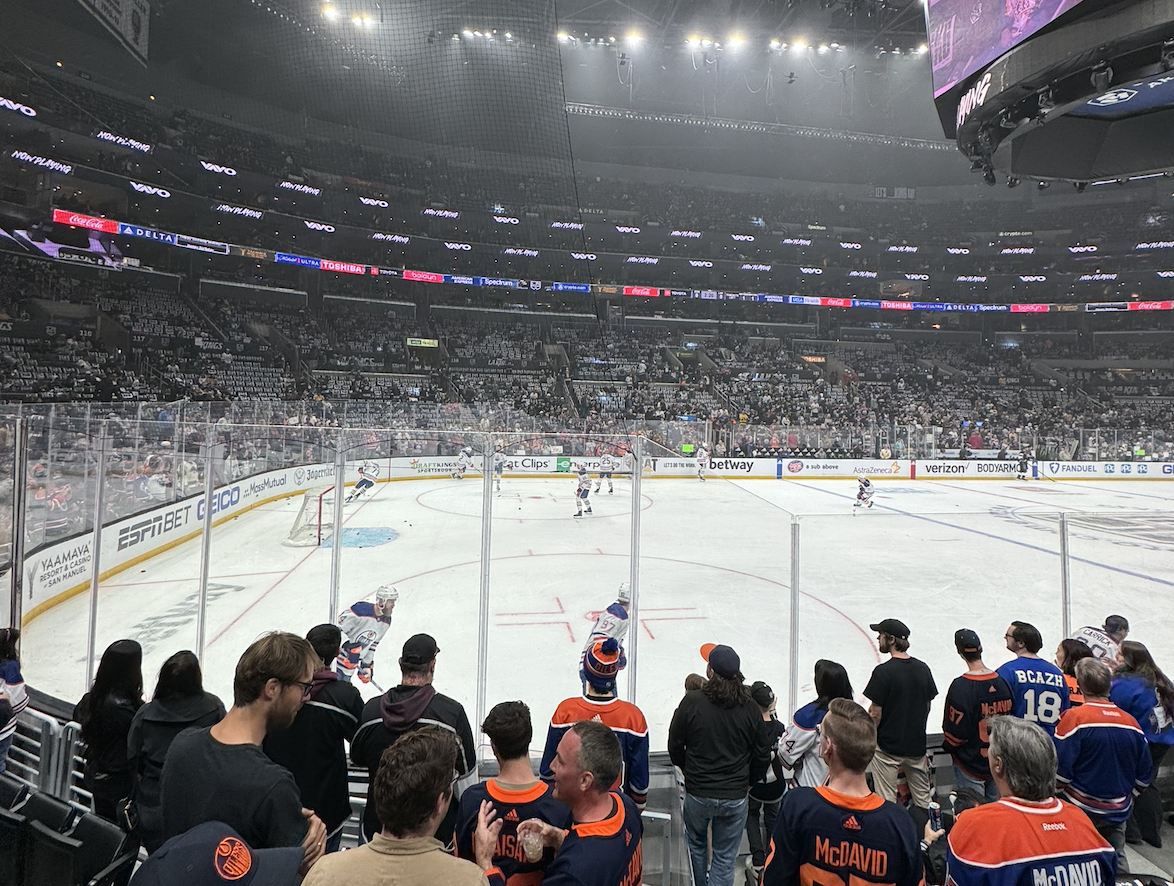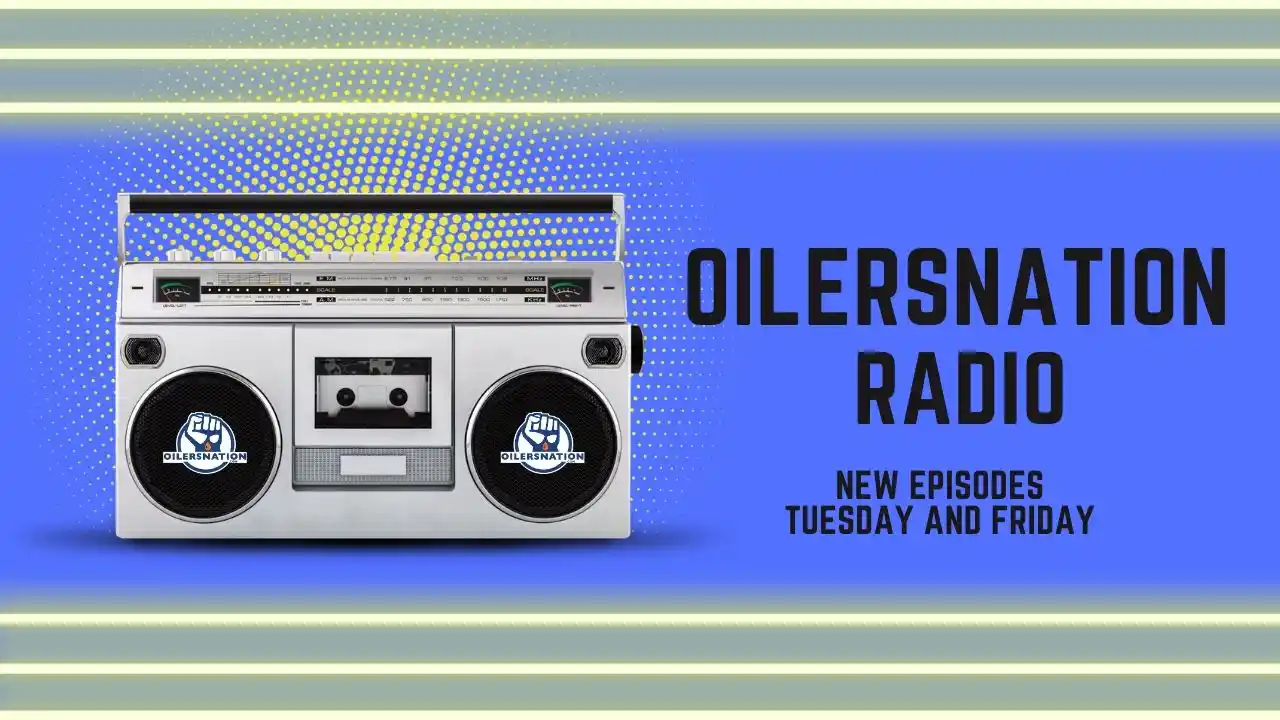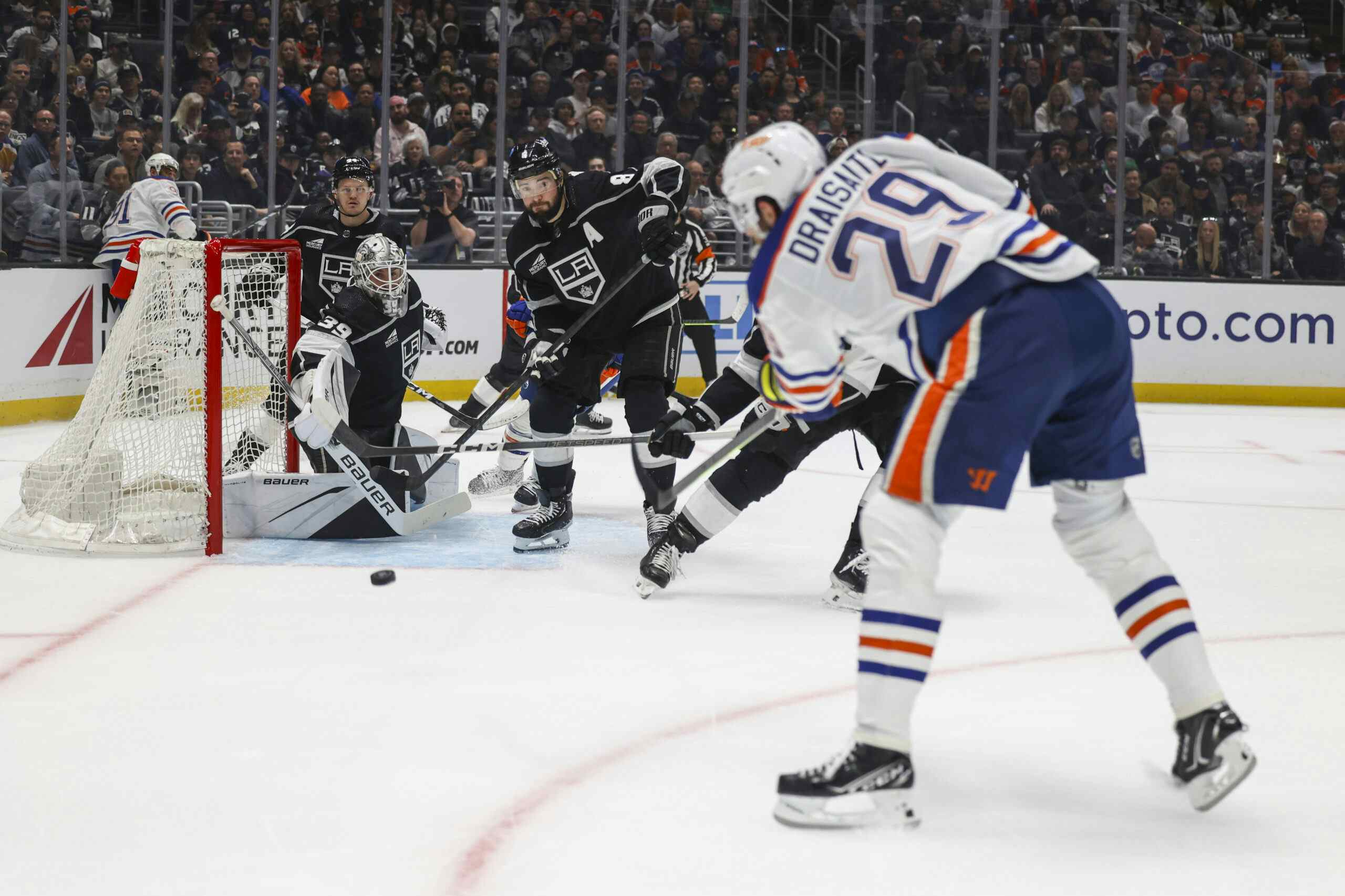COMPARING RECENT ARENA COSTS
By Jason Gregor
11 years ago
Last October when Edmonton city council voted 10-3 in favour of the funding model for the new arena in Edmonton I thought it was a good deal. I was surprised at how some felt the city was actually get the raw end of the deal. Some felt the city was taking all the risks, with no reward, even though that wasn’t the case.
The reason I liked it was that I compared it to other deals in recent markets. I caught up with Andrew Conte, writer at the Pittsburgh Tribune-Review and author of Breakaway, a book about the Penguins. It focused on the behind the scenes negotiations of a new arena in Pittsburgh and how gambling money is essentially funding the arena.
As you all know the Katz Group and the City of Edmonton have yet to agree on a funding model for the new arena. The Mayor and many councillors thought they had the framework to a deal, but the Katz Group clearly doesn’t.
Rather than go around in circles about that, I thought I’d find out how they got it done in Pittsburgh.
A casino licence in Edmonton could ultimately play a huge role in getting this deal finalized. From what I understand, the Katz Group has been unable to secure a licence. Sources tell me that the provincial government has put a stop on new licences for the time being. The Katz Group offered to buy the licence from the Baccarat Casino, but to date they’ve been unsuccessful. If they get a licence that might be the final piece of this agonizingly long process.
Conte broke down the Pittsburgh deal:
Jason Gregor: Now that you have the arena, what is the feeling in Pittsburgh? Did either side, city or Penguins, win the negotiations?
Andrew Conte: No. I think everybody here feels now that it’s all done that it was a clear win for everybody. I mean, this was the sort of situation where the public, the fans knew this was going to be a great team, that they had the potential to win the Stanley Cup when this was all coming together. And of course, once it did come together, there was agreement to build the arena, then the Pens go out and they win the Cup, and it sort of was a good feel thing there.
Even from an economic standpoint, you don’t hear of people here griping about it now and saying we were taken advantage of or the Penguins got an unfair deal. In a sense, sort of everybody compromised, I think. But it’s also because during the process there was this sense of what you guys are feeling right now, you know. Yeah, the team really could leave. They really could go somewhere else. I think when you get to that point of the discussion it becomes a real game changer.
JG: The Penguins pay about $4 million a year for the arena. Is that right?
AC: Yes.
JG: And then there’s a ticket tax, but that actually goes back to the Penguins because they pay for the operating costs.
AC: The main financing for the arena here comes from the casino in the city of Pittsburgh. And originally ‑‑ some of your listeners might remember that the Penguins tried to get the casino license themselves. They partnered up with a company. This company, Isle of Capri Casinos, said, "Look, if we get the license, we’ll give you $290 million. Go build your arena. Day one, go do it."
Well, the State decided they didn’t want to do that, and that’s when it fell apart. They came up with this deal where the casino contributes about $7.5 million a year, and then the State contributes another $7.5 million from its share of the gambling proceeds from across the state.
JG: So gambling proceeds from across the entire state put in the $7.5 million, the casino puts in $7.5, and then the Penguins put in $4. So that’s about $19 million a year. Correct?
CE: Right, and the Penguins got the naming rights for the arena. So the money that came in from that would go towards their four million that they contribute.
JG: Does the ticket tax go back to the Penguins?
AC: The ticket tax here was not a part of the original deal. Basically what the deal here is the Penguins get to operate the arena. So whatever they make on off nights, off‑hockey nights, that all goes to the money that they would make. Any ticket tax would go probably into a reserve. The way it’s worked here, the arena is actually held by an authority, and so they hold back a certain bit of the money for whatever goes into, you know, future repairs. Like, the football stadium we have here, they used that ticket tax money to put in a new high‑definition Jumbotron a few years ago. But since the Penguins are responsible for the operating costs and upgrades that is “technically” their fund.
JG: What was the biggest benefit to the City of building this new facility? Do they get all the new tax dollars from it? How are they benefitting?
AC: I think essentially that, one, you keep the team here. So you’ve still got the Penguins here. And then you’ve got this new facility where on 200 nights a year, on all the off nights, you’ve got other events going on. You know, Madonna is coming to town. Madonna never came to town before we had this new arena. She wouldn’t come to the Civic Arena, but she comes to the new place.
So those sorts of benefits, the economic benefits of people who didn’t come here before are now coming in. And then what you have got is all around the arena. The Penguins built a new hotel right next to the arena, and they have got plans now to own the site where the Civic Arena was ‑‑ it’s right at the edge of downtown, and they’re planning to hopefully build some sort of a new neighbourhood there as well. So you get rebirth on this piece of land right in the centre of downtown.
JG: Did you say the Penguins built the hotel or just a hotel was built?
AC: Yeah, the Penguins. The Penguins ‑‑ that was part of the original deal ‑‑ they got the development rights for the land around the arena as well. That was part of the deal. You know, if there was any acrimony after the arena deal, it was over what to do with the old arena. You know, the Civic Arena, people were nostalgic about it. When it was built in the 1960s, it was a real state of the art kind of thing and kind of put Pittsburgh on the map. I mean, the Penguins are named for the old arena. It had a big silver dome. It was called the igloo. So when we got an NHL team, it was named due to the connection to the arena.
There was a lot of dispute in the community about should we save the arena, should we do something with it, should we do something new with it. But in the deal that the Penguins had reached with the public, it said right in there that the Penguins would get the parking revenue. The site where the Civic Arena used to be is now a surface parking lot.
The Penguins get revenue from that, and then they get the rights to develop that land. They have ten years to develop it. If they don’t, then they start losing parcels.
JG: So the City fronted all the money and the $7.5 million is paying off that loan?
AC: Originally there were bonds that paid for it. Both the casino and the State are paying their portion and the Penguins as well. That was one of the points of contention after the casino process here. Was that the amount of money ‑‑ the casino commission — If you do $7.5 million for 30 years, it’s a lot of money. But the fact is you can’t borrow the same amount of money. You have to pay for interest and those sorts of things, and so that’s where they didn’t have enough money to actually build the arena.
JG: So this came from bonds and none of it was taxpayer dollars?
AC: Right. They borrowed the amount of money to build the arena. It was all bond money. Once they had two revenue streams ‑‑ they had the casino money and they have the State putting in the money ‑‑ then they were able to borrow against these dedicated revenue streams. They went out and borrowed money to build the arena with, and they’re using these dedicated revenue streams over 30 years to pay down the bonds. The City itself didn’t kick in anything here. It was the casino and then the State using its share of the slots money.
JG: So the city pays $7.5 million a year?
AC: No, the City doesn’t pay anything. The City of Pittsburgh pays nothing. It’s the State of Pennsylvania that pays $7.5 million a year, and the casino here pays the other $7.5 million.
JG: Are you saying that people in Pittsburgh don’t look at the city of Pittsburgh casino money as quasi tax payers dollars. The city would recoup if the arena wasn’t there.
AC: That’s the beauty of gambling money. That’s why they are putting casinos all over North America now. Taxpayers don’t look at it as tax money; they look at it as gambling revenue. In (my book) Breakaway I go into great detail about how governments all across the United States ‑‑ and I know it’s true in Canada because I’ve been up there and gone up to Windsor for a story on gambling — are doing this.
Politicians are happy to bring in the casinos, and taxpayers are happy to have them do it. When we were getting the casinos here in Pittsburgh, there were 14 across the state that have been legislated, but aren’t all open yet, the biggest complaint was not why are you bringing casinos here; it was why don’t you have them here yet? How quickly can you get them open? I think because its slots money people have not looked at it as tax revenues.
In reality, I’m sure the State could be using that portion for reducing property taxes or investing in schools or any other kind of infrastructure.
JG: When you look at this deal now, it cost $321 million for that facility. Did Pittsburgh get any rebates on that cost?
AC: There was an acceptance at some point that, you know, there’s the stadium that we’d like to have and there’s the stadium that we can afford. And I think that’s the conversation you’re going to have there in Edmonton too. Some of the renderings I’ve seen for the arena there, they look beautiful. It’s going to be a ‑‑ it would be a beautiful building. It would put Edmonton on the map as an architectural place.
I mean, it’s a fantastic facility, but is it a facility that you can afford? Or could you get by with doing something smaller that is going to still be nicer than what you’ve got? It’s going to be generating revenue for the community and it’s still going to be a great facility, but it’s going to cost less. You know, that’s a discussion for the community to have.
WRAP UP
When you compare the deal the Penguins got: free land beside the rink, only $4 million payment a year, the naming rights and the ticket tax goes into a fund to refurnish the arena, the deal the city of Edmonton brokered last October looks pretty good. We all know the arena deal will eventually go through, and the casino licence might be a small part of the deal.
Recent articles from Jason Gregor





